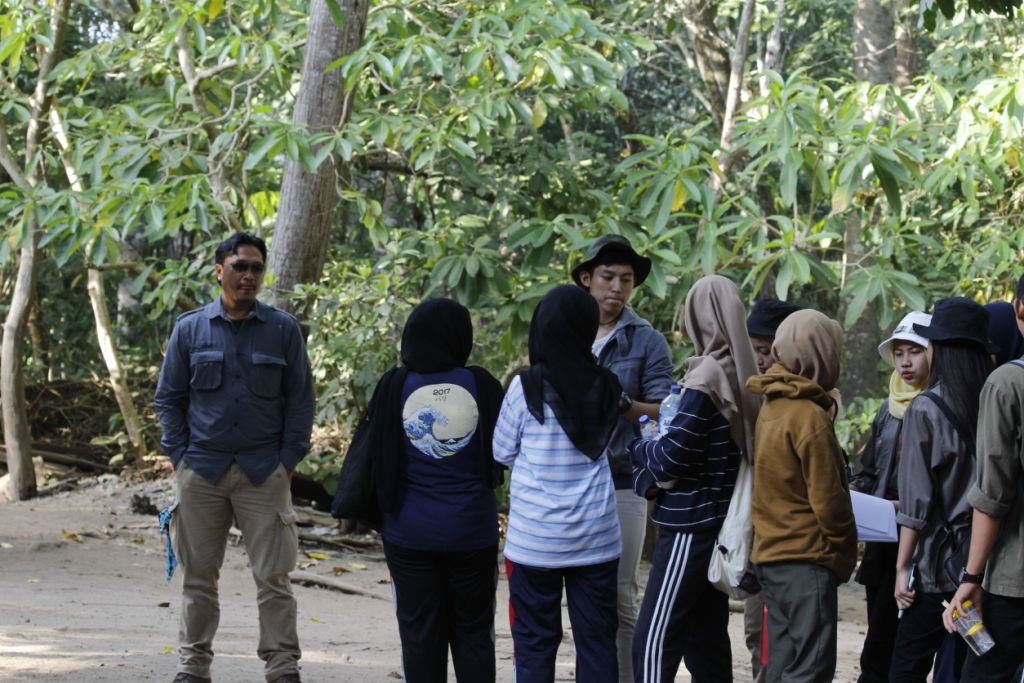UNAIR NEWS – The Pet and Wild Animal Interest and Professional Group (KMPV) and Wild Domestic Animal Care Division Universitas Airlangga Faculty of Veterinary Medicine (FKH), from 22-25 June 2019 held an activity titled “Wildlife Observation.” They kept it at Alas Purwo National Park, Banyuwangi, East Java.
The purpose of this activity is to improve knowledge and skills in handling animals in the field, especially wild animals and is expected to be useful in answering the challenges of the veterinary profession. There were 89 participants in this activity, consisted of FKH UNAIR students and several FKH lecturers.
Moch. Rizky Darmawan, as the chief executive, explained the background of this wildlife observation activity. In his opinion, Indonesia is known as a country with vast biodiversity; however, Indonesia is also known as a country with a long list of endangered wildlife.
“The current number of Indonesian wildlife species threatened with extinction according to IUCN (2011) is 184 species of mammals, 119 species of birds, 32 types of reptiles, 32 types of amphibians, and 140 other species,” he explained.
Furthermore, continued Rizky, for the total number of endangered Indonesian animal species with critically endangered categories, there were 69 species, 197 species of endangered species and 539 types of vulnerable categories. He also said the reason for choosing Alas Purwo National Park is because it is one of the two national parks in Banyuwangi, which is an ideal place for diverse flora and fauna in it, both mammals, birds, and herpetofauna (reptile and amphibian) classes.
“Alas Purwo National Park is also a very beautiful area with exotic rows of beaches,” said the 2017 FKH student.
In the end, Rizky also said that there is a Jungle Track activity in the form of wildlife observation, wildlife identification, studying wildlife behavior, feces and trace examinations, medical conservation, the release of hatchlings on the beach as well as discussion on jungle track results.
“We hope that KMPV PW and WDAC can help and work together as a forum for prospective veterinarians who have an important role in the preservation and health of wild animals,” he concluded. (*)
Author: Muhammad suryadiningrat
Editor: Nuri Hermawan





